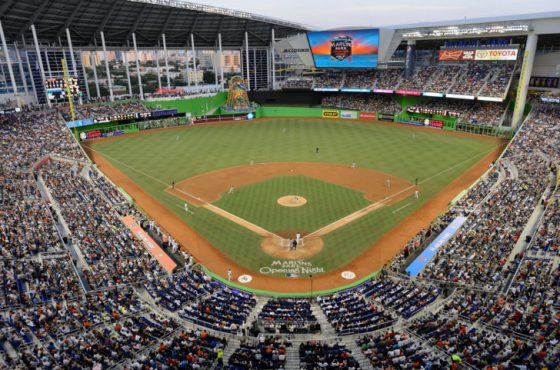Why Las Vegas Sports Betting Will Always Remain on Top
Nevada, especially Las Vegas, will always remain the sports betting capital despite any national legalization
There’s a lot of questionable information and confusion coming from the NBA and Major League Baseball when it comes to sports betting legalization. The two pro sports leagues have insisted it’s either their way or the high way when it comes to new wagering laws that are being considered if the US Supreme Court strikes down the federal ban.
They’re not getting their way with a West Virginia sports betting law that is about to be enacted. They are still lobbying in plenty of other states. But apparently, the leagues don’t have their talking points lined up on whether sports betting is going to help them economically.
The NBA appears to be confused
The NBA and MLB have been pushing back on the idea that they’re due for an economic windfall should sports wagering become widely legal in the US. TV ratings and the amount of time fans spending watching broadcasts is almost certainly going to increase in that scenario. How much benefit they will actually get is certainly up in the air, but to say there’s none is pretty disingenuous. The NBA is all over the map with different proposals and ideas that are rampant and inconclusive.
In the meantime, Las Vegas sportsbook operators are amused at the various proposals being floated around the buildup to a Supreme Court decision on legalized sports betting. They have built and improved their book operations to accommodate all sports bettors with the best facilities and a total enjoyable environment. Their betting apps for local bettors is a big hit. The service companies offering data driven support are getting better information to bettors. Sports betting advisers are improving their image with basic betting knowledge without the old hype and spice adds. Most of the growth and success of sports betting is from the gambling capital in Las Vegas. The extra input comes from the reputable off-shore books which are very formidable. It seems the amateur side of sports betting is evident with state politicians and major league executives trying to move their agenda forward.
How will the hype coincide with reality
Scott Ward, representing the NBA and MLB as a lobbyist, said from a hearing in the West Virginia legislature last month on the idea that leagues will benefit. This was in a response to a question from a lawmaker asking why should West Virginia give the leagues a “sports betting integrity fee” — a one percent tax on handle payable to the leagues — when they stand to benefit anyway.
“I’ve heard this a lot, that people are going to bet and then they’re going to watch the games, and you are going to get so much more money from people watching the games. I think that’s based on a faulty premise. And there’s really no data to support that. And here’s the faulty premise. The premise is that if you bet on a game, you’re going to watch the sport.
Ward continued to say in order for that to grow, we’re talking about a large illegal market that exists now. So let’s assume also those people are now watching sports because they’re betting. To have additional eyes, and for this large amount of money for us, we have to find the right people. Those who don’t watch sports right now and don’t bet right now. That’s not your market to come and bet. So I think that faulty premise which underlies the concept we’re going to get a bunch of money from people watching really just doesn’t exist. Ward says the NBA and MLB aren’t going to get much out of sports betting in terms of organic economic impact.
As the sports betting world awaits the U.S. Supreme Court decision that is expected to lead to an expansion of Nevada-style sports betting nationally, a favorable decision to allow sports betting is just the beginning of a long drawn out battle over other issues that are facing state legislators and the federal government. How will they sort out the various parts of implementing a new law that allows sports betting and the millions of dollars at stake. It is similar to a large inheritance being carved up by family members who were loving siblings but now are bitter foes who have no need for sharing the wealth.
It’s a precarious endeavor, but let’s speculate on what bookmakers will be leading a veritable and immediate land rush in New Jersey, New York, West Virginia, Iowa and as many as 15 other states toward what many believe could be untold riches — and others believe a revenue source that’s only a mirage.
Who are the major players. What moves will they make to gain a foothold in this emerging market. There will be some purse money for place and show because the lower the odds, the more successful the sportsbook operation will be. A bookmaking company may still access significant revenue without being the largest if that company can gain a foothold by achieving a favorable revenue split with an individual state. A good policy of continued growth through a combination of a physical and online presence will be fortuitous.
Having the biggest wagering operation in this future book may not necessarily earn a particular company the biggest profits, but reasonable state regulations and shrewd bookmaking will. A key element could be explaining to various state lawmakers that some of the proposed exorbitant revenue splits between the federal government, the individual state government, the various leagues and the bookmaking operator cannot possibly spawn a successful industry. The company that can make that message understood will be the most successful.
Which Las Vegas book operators are the leaders to use as a growth and operational model for states to start their new endeavor without friction and delays
Las Vegas casinos have created the biggest and best sports betting industry in the world. They have constantly upgraded and improved the sports betting environment over the years to meet the demand for services. Can legalization be implemented once it becomes law. It seems like a big puzzle for states to enact unless some of the major players become more active in this huge new ruling from the Supreme Court. Who can make a difference and what role can the Vegas operators play for a successful transition.
- William Hill
This UK-based bookmaker has had a major presence in the U.S. since 2012 when it purchased a trio of Nevada operators. The company has expanded in the state ever since. William Hill employs about 17,000 people worldwide, according to their website and serves as the exclusive risk manager for the State of Delaware’s Sports Lottery. They are well connected in New Jersey and Delaware and has William Hill poised and ready to move quickly should legalization happen. They have the right mindset, the infrastructure and the political savvy to be a front-runner in the race for success. William Hill’s gate speed, staying power and commercial relationship with Scientific Games, the company that recently acquired the “Open Bet” sports wagering platform, makes them the favorite. In recent years, executives from William Hill have been familiar faces at sports wagering industry conferences worldwide, including testifying at various state legislative hearings, and are well known in locales beyond Nevada.
- Caesars Entertainment
While lacking an aggressive profile in Nevada in recent years, the company already has a major foothold in numerous states where sports betting legislation has crossed or is nearing the finish line. Because Caesars already has licensed brick-and-mortar casinos, theoretically they might be able to start taking sports wagers as quickly as anyone else. However, the company lacks the online sports profile many competitors have and the recent financial difficulties the company has experienced would certainly stop them from allowing any serious financial exposure when it comes to sports betting. The company, although very different than it was when it stood for luxury on the Las Vegas Strip, has name recognition and a brand that is unmatched nationally.
- MGM Resorts International
CEO and Chairman Jim Murren has said recently his company will move quickly to establish sports betting at its U.S. operations, headed by The Borgata in Atlantic City, MGM National Harbor in Maryland, near Washington D.C., and the soon-to-open MGM Springfield in Massachusetts. It’s a huge company, the biggest employer in Nevada, with a major worldwide profile. If they are seeking to operate sportsbooks in properties they don’t own or run, there’s been no word of it. However, behind-the-scenes maneuvering would allow MGM to expand beyond its own properties.
- Boyd Gaming
Another significant regional casino operator with racetrack properties and as much sports betting knowledge as anyone else in this race, Boyd is another company that could place pop-up sports books in numerous venues. Although the Stardust name is largely mothballed presently, it was synonymous with sports betting in Nevada for decades. The company has a history of innovation that cannot be discounted. Like Caesars, they don’t need any partners to get up and running in Louisiana, Kansas, Iowa and elsewhere. It’s a budget-conscious company with the know how to make the most out of the small margins in sports wagering. If the numbers in a deal don’t work, they do not make the deal. The company’s Southern Nevada sports books rival any competitors with a distinct brand and numerous possibilities.
bfraser1011@gmail.com







